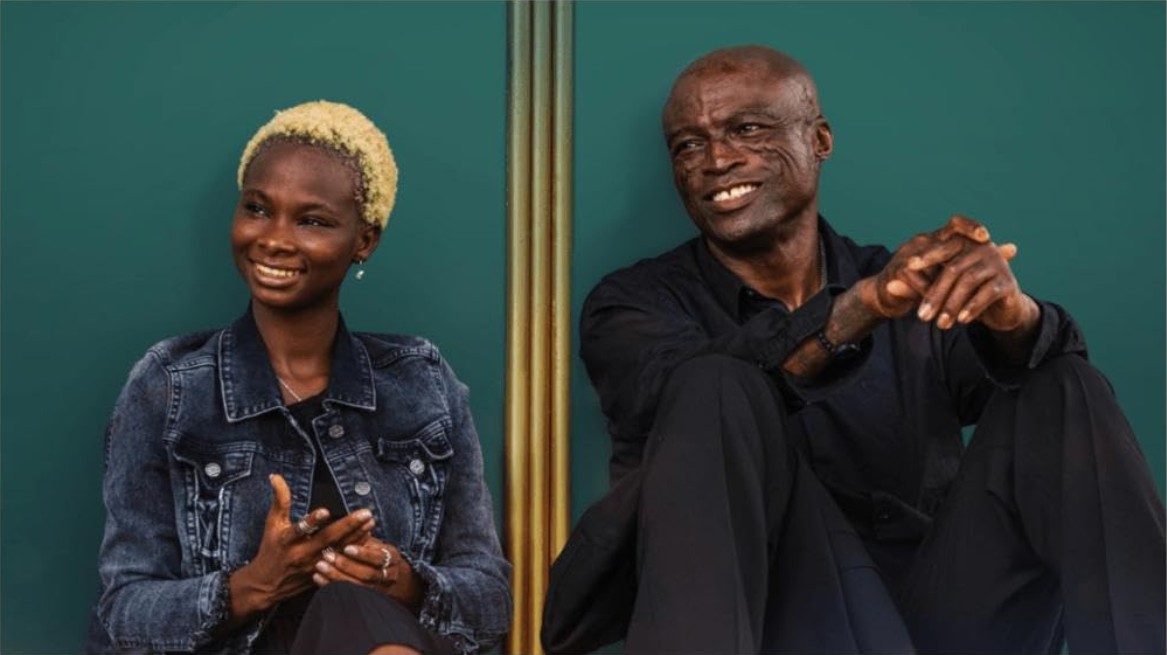Dust to Dreams is nothing short of bewildering—full of promise that unfortunately gets lost in translation, and burdened with an overloaded narrative that has no breathing space.
By Vivian Nneka Nwajiaku
An ambitious capacity showcase. A barrage of cameos. A well of untapped potential. Dust to Dreams (2025) is the first film to emerge from an Africa-centred partnership between Idris Elba and Mo Abudu, both global powerhouses who need no introduction.
For this Lagos-set short film, Elba takes on dual responsibilities as writer and director, working from an original story idea by Abudu, who serves as producer under the EbonyLife Films banner. But to call it underwhelming would be an understatement. Dust to Dreams is nothing short of bewildering—full of promise that unfortunately gets lost in translation, and burdened with an overloaded narrative that has no breathing space.
The film’s premise revolves around multiple conflicts rooted in familial relationships. Millicent “Milli”, played with gentle strength by Nse Ikpe-Etim, is a mother tidying up her affairs as she gracefully faces the terrifying hand of death. She runs a busy nightclub she inherited from her late father, which she intends for her only child, Bisola “Bisi” (Constance “Konstance” Olatunde), to inherit. But her sisters, the forcefully aggressive Comfort (Eku Edewor) and the overwhelmingly passive Patience (Atlanta Bridget Johnson), want to participate in their father’s legacy, pushing instead to sell the club.

With the succession battle brewing and her last days approaching, Milli finds her daughter’s estranged father and reintroduces him into their life. Johnson is his name; he is fondly called the Singing Soldier; and though initially intended as a role for Elba, he is played by the multi Grammy Award-winning singer-songwriter, Seal. His arrival sends the film in a more interesting direction. Before he shows up, Bisi wonders if she will have to refer to him as daddy. “You’ll know what to call him when you meet him”, Milli says. And when he does arrive, he is content with being called by his name, Johnson.
In Johnson’s dynamic with Bisi lies Dust to Dreams’ main emotional core, heightened by their shared conflicting relationship with music. The Singing Soldier no longer sings, and Bisi does not consider herself a singer. It’s easy to tell that there’s a potentially resonant story there when Milli probes Johnson about his singing, and when she teases her daughter: “No talent whatsoever”. But that story ultimately remains untold, though father and daughter eventually find their voices in a closing musical number that is too little too late, landing flatly on an audience that rightfully expects more.
The relationship itself, between Johnson and Bisi, gets the same cosmetic treatment. When Johnson shows up, Bisi’s concerns seem to evaporate, and Dust to Dreams moves too quickly through their arc—their uninspired first meeting, their rushed bonding, their curiously affectless grieving—never really creating the emotional tension or establishing the conflict that it appears to resolve in the end.

The conflict that Dust to Dreams does establish, the fate of the club in the event of Milli’s passing, is underexplored and unjustifiably left hanging, treated instead as an opportunity to line up a slate of Nollywood cameos as potential buyers for the club.
It is interesting that professional actors end up as fodder in this film, while the lead roles are predominantly taken up by professional singers who actually put up some of the better performances. Olatunde makes a confident debut with a spirited shift, unthreatened by the bigger names around her, and we’re left wondering how much more remarkable she could have been if the screenplay had made any effort with her internal conflicts.
And though Seal does not nail the accent, he does hit what few emotional notes there are, with a sincerity that would have been more strongly felt in a more stirring film. They are good enough actors, and even better singers. It’s a loss that neither of those talents is milked in this film.
Really, Dust to Dreams wastes the pedigrees of its many talents. The film’s production aesthetics reveal obvious experience, but the technical elements essentially have to serve a screenplay and directorial vision that seems more interested in showing how much can be accomplished at once than in mastering any element.

Perhaps, a vanity project is not what Elba and Abudu intended. Elba, in particular, has spoken about wanting their partnership to result in good films. Dust to Dreams does not achieve that.
With all the initial momentum increasingly squandered as the film nears its end, Elba’s short winds up less like dust to dreams and more like dreams to dust. This film should be moving, one that you sit with. Yet, when it takes its final bow, the big question Dust to Dreams leaves you with is: “Wait, is that it?”
Rating: 2/5
*Dust to Dreams premiered at the Toronto International Film Festival (TIFF) 2025 and subsequently screened in the same year at BFI London Film Festival and Entertainment Week Africa. The short film is now available to stream on EbonyLife ON Plus.
Vivian Nneka Nwajiaku is a writer, film critic, TV lover, and occasional storyteller writing from Lagos. She has a master’s degree in law but spends most of her time watching, reading about and discussing films and TV shows. She’s particularly concerned about what art has to say about society’s relationship with women. Connect with her on X @Nneka_Viv


